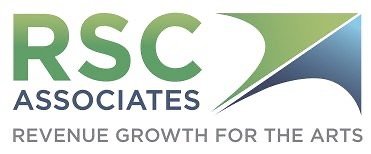ERR ON THE SIDE OF ASKING
With Bob Swaney
In today’s podcast, I share what gets in the way of making asks, the risks associated with erring on the side of asking, and ways to overcome delays in asking.
Read the full transcript below or click the button to listen.
FULL TRANSCRIPT OF THE PODCAST
A few years ago, I worked with an organization that launched a significant comprehensive campaign, including annual fund, endowment and legacy gifts. They had a sizable patron list with a growing base of donors. Fundamentals were good, and getting better as they entered into what I’ll call, “The Big Campaign.” But once the Big Campaign was launched, the organization started second-guessing itself, and delaying the gift solicitations. I won’t go into all of the reasons why, but suffice it to say some concerns were legitimate, while others were mostly fear-based. The early results were this: asking for support came out of the gate very slowly for the Big Campaign, which, in turn, began to slow down the Annual Fund momentum gained in previous years because it shared so many of the same top-donors and prospects. In retrospect, most of the slowdown could have been avoided, but the organization had really psyched itself out in a bad way.
Now, the story has a happy ending, whereas the organization finally began to increase the frequency and pace of solicitations for its Big Campaign, responses were favorable, confidence was gained, and goals were met. And the Annual Fund recovered and grew, too.
I learned a lot through that experience, and if you’ve experienced something similar, I bet you learned from it too. There are lots of reasons fundraising staff and volunteers won’t ask a prospect for support without a lot of feet-dragging. Whether it’s for annual giving, a major gift or a planned gift, hesitation often seems more comfortable than taking action.
In general terms, the root of hesitation can be summarized into one of these three categories:
It’s about the donor
It’s about the organization
It’s about the asker
Let’s dig a little deeper into each one of these and explore how legitimate concerns can sometimes turn into common excuses to prevent a gift ask from happening.
1. It's About the Donor
Building deep donor relationships is crucial. Yet, the more you know about a donor, the more reasons you might find to delay asking. Personal anecdotes, travel plans, new jobs, extenuating family circumstances — all valid points to consider. But often, they become excuses for postponing the ask indefinitely. Instead, ask yourself and your team better questions. Instead of framing the question as, "Is now a good time?" shift to, "If we had to ask in the next few weeks, how would we do it?" It injects a sense of urgency and creativity into strategy that is missing with a yes/no question.
Imagine this scenario: Donor A's name comes up in a prospect management meeting and a conversation begins about asking for support. The conversation continues, meeting after meeting. Various reasons to delay an ask surface, one after the next—things like upcoming travels, recent philanthropic commitments to other organizations, personal milestones in their life and more, that make the timing feel ‘not right.’ Each time, scheduling the ask gets delayed.
But what if we reframed the question? Something like "if we had to ask Donor A in the next month, what steps would we take?" This shift in mindset puts the focus on proactive planning rather than unnecessary delays and excuses.
Moreover, consider the importance of ongoing donor engagement. Regular communication and updates not only maintain donor interest but also pave the way for timely asks. By staying connected and understanding your donor’s preferences, your organization can navigate the timing of the ask process more effectively.
2. It's About the Organization
Timing and organizational situation shouldn’t be a barrier to asking for support. Waiting for the perfect moment—a big announcement, resolving internal issues—can often lead to perpetual delay. Consider how making the ask now can actually enhance the donor's experience. Turn timing hurdles into opportunities to build trust and value.
For instance, instead of waiting for a major event or milestone, use the current momentum to engage the donor. Provide them with exclusive updates or insights that align with their interests. Showcase progress and impact, which can be powerful motivators for donors to step forward and be ready to support the cause—especially when they get the “insider’s view.”
Additionally, strategic planning is key. Aligning fundraising efforts with organizational goals and timelines ensures a cohesive approach that will make sense to the donor. By integrating fundraising activities into broader strategies, your organization can leverage existing momentum and resources for more natural solicitation approaches.
3. It's About the Asker
The askers, be it staff or volunteers, often find themselves juggling multiple priorities. It's easy to categorize a solicitation as a “preference” and not a “priority.” I often say, the days are numbered and very precious, and for each day you and your team aren’t making campaign asks is a wasted day. My solution, again, is to ask good questions. Delegate, strategize, and set deadlines to keep the momentum going. If a solicitor is legitimately unable to make their assigned ask, then you should ask questions like, "Who else could participate in this ask?" or "What additional asks can this meeting prompt and how can we use it as leverage to expedite the solicitation?"
One caution: Erring on the side of asking doesn't mean being reckless. It's about challenging hesitations, exploring “why now” might be the right time, and then delaying only when there are legitimate reasons. Ultimately, it's about keeping the fundraising engine humming along by embracing a proactive and creative approach to the achieving your fundraising results.
Moreover, consider the role of training and support. Equip staff and volunteers with the necessary skills and resources to empower them to confidently make asks, and very often, short-circuits common delays in the process. Provide ongoing guidance and feedback to ensure a consistent and effective fundraising strategy across the organization.
The Risks of Rushing In
What are the risks associated with erring on the side of asking? If you haven’t asked yourself this question, you probably should—because there are risks, mostly associated with the donor.
There are legitimate causes for delay, which usually fall under personal reasons. Someone is sick. Business or personal finances are suffering. Someone recently died. The rightful human response is to wait—and in those cases, moving forward would put the prospect’s consideration of the gift request at-risk.
In these cases, I’m not suggesting you take “err on the side of asking” to an absurd level. My hope is that you’ll challenge yourself and your solicitation team to lean into reasons why the solicitation should happen sooner rather than later, but if the thoughtful answer is “later,” then it’s the right answer.
The Last Word
In conclusion I’ll say this: it’s easy to delay an ask and it’s sometimes difficult to keep a campaign’s momentum running strong. When you see that happening, asking good, open-ended questions while you consider the solicitation timing will provide thoughtful and informed creativity that often leads to making the solicitation in an earlier timeframe.



